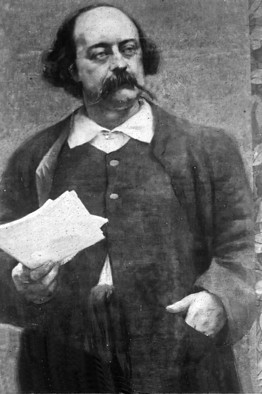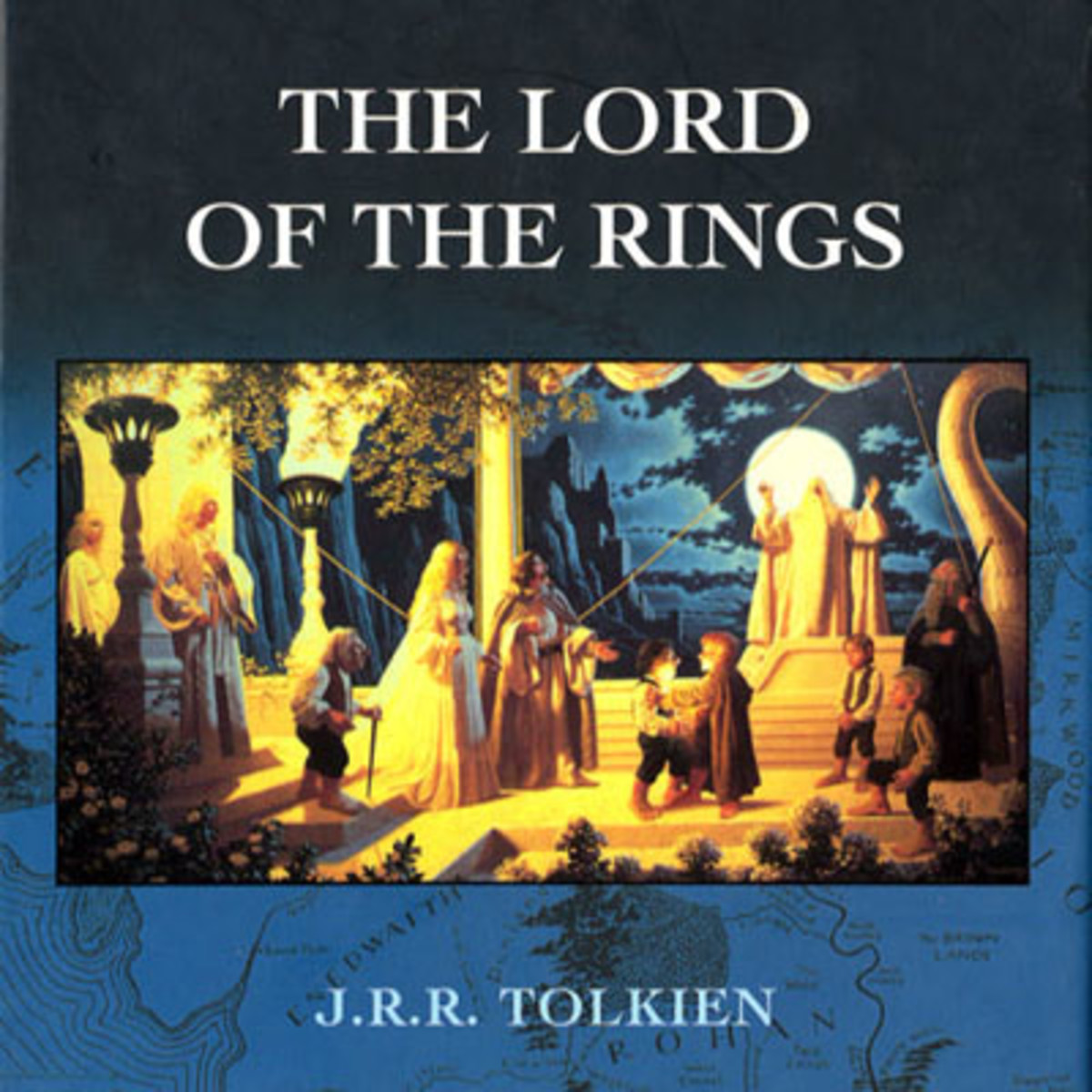Audiobook Classics: Madame Bovary
"Serial" - The Wikipedia Definition
Madame Bovary by Gustave Flaubert was published in serial in Le Revue de Paris in 1856. Wikipedia defines: In literature, a serial is a publishing format by which a single large work, most often a work of narrative fiction, is presented in contiguous (typically chronological) installments—also known as numbers, parts, or fascicles—either issued as separate publications or appearing in sequential issues of a single periodical publication.[1]More generally, serial is applied in library and information science to materials "in any medium issued under the same title in a succession of discrete parts, usually numbered (or dated) and appearing at regular or irregular intervals with no predetermined conclusion."[2]
In other words, when Flaubert leaves us with a cliffhanger at the end of a chapter, we would of had to wait a whole week for the next installment!
Flaubert Comes Alive!
Whether reading a heavy, leather-bound volume, reading an e-book, or listening to an audiobook, it’s probably impossible for the 21st century adult reader to experience Madame Bovary without feeling the weighty presence of the millions of words written about the novel, about Flaubert, about each and every character, and probably about Emma’s favorite positions in the sack, the meadow, the carriage, the arbor, the riverbank, the kitchen, the billiards room. Flaubert, everything he wrote, said, touched, ate, and thought has been so thoroughly analyzed that the challenge, as I imagine it is for all readers of the classics, is to at least temporarily stow all of that information in a lockbox and enjoy the story.
The 21st century fiction writer could probably spend as much time researching as actually reading the story. Once I started looking into the background I felt like I had fallen into a black hole that at another point in my life I would have jumped into but in these overly busy circumstances must avoid. However, even with all of the sideshow, I became completely engrossed in the world Flaubert created around the story of Madame Bovary, and I read nary a single word.
The Kate Reading Narration

Flaubert Wanted It To "Sound Good"!
For those that prefer perhaps a tamer, more civilized bucket list, having Madame Bovary read to you might be worth including. There is nothing to lose and much to gain by listening to a great voice talent read (Kate Reading* narrates the Penguin Classics version). Flaubert’s vision is conveyed so naturally and in such an accessible, believable tone that the translated writing – the choice of words, the construction of the sentences, the grammar – all of it - is hardly noticed at all. This, of course, is the genius of Flaubert, and testimony to the achievement of his goal: “… to write the novel ‘objectively,’ leaving the author out of it.” (K.L. 61, Introduction by Lydia Davis)
The compare/contrast studies have grown exponentially since the advent of books-on-tape in the early seventies to downloadable .mp3 files today. And the “one-click-away” proximity of these studies through Google and other search engines make idle theorizing and conjecture seem sort of lazy and irresponsible. A query of “reading versus listening to books” turns up 298 million Google results. I could cite scientific white papers ad infinitum about the studies that demonstrate why “hearing” a book, in certain circumstances, is more memorable than reading a book. For example a recent article on the PsychCentral blog cites a study that indicates that reading interferes with imagery.
“Reading and imagining both require visual representation. It appears that when the visual bits of our brain are busy taking in the written word, there’s less of them available for creating an image of the content.” (“Audio Books vs. Book Books: Which Does the Brain Prefer?” By Sophia Dembling Psychcentral November 2012)
In the case of Madame Bovary, Flaubert himself wondered what it would be like to “give psychological analysis the rapidity, clarity, passion of a purely dramatic narration.” And if we agree with translator Lydia Davis about Flaubert’s intentions, we get a better feeling for the importance of the sound of the work: “What he is trying to achieve in this book, instead, is a style that is clear and direct, economical and precise, and at the same time rhythmic, sonorous, musical, and ‘as smooth as marble’ on the surface, with varied sentence structures and with imperceptible transitions from scene to scene and from psychological analysis to action.” (K.L. 133 Introduction by Lydia Davis)
These rhythmic, sonorous, musical qualities can only be heard, and, once heard, perhaps felt in someplace else in mind or body. That doesn’t necessarily mean that in order to hear these qualities we must be listening to someone else. We could conceivably experience these characteristics by listening to the voice in our own head, presupposing that reading does in fact produce the mental equivalent of voice.**
Again, in the case of Madame Bovary, the difference between listening to a professional narrator read and actually reading the words on the page is quite profound. While the reading experience can be powerful, when I read I find myself stopping to think about things, going back, looking up translations, pausing to conjure an image in my head, re-reading and re-reading again. You really can’t practically do any of these things when you’re listening to an audiobook, especially while you’re driving. Even rewinding a story on an iPod is a dangerous proposition.
Gustave Flaubert

The Genius of Kate Reading
Of course the success of an audiobook is highly dependent on the quality of the narrator. Kate Reading* has narrated 234 audiobooks now available on Amazon. She has received three “Earphones Awards” and has been named by AudioFile magazine as a "Voice of the Century". And so it was no surprise when I found myself completely entranced by her reading. In Madame Bovary, she assumes different dialog voices for each of Flaubert’s many characters (not all narrators do this) and in so doing creates an image in the listener’s mind. Homais is proud and bellicose, Emma is generally soft and earnest. Charles sounds like more of a dullard than he probably is, being a doctor. Rodolphe’s voice is dark and scheming while Monsieur Leon sounds like he just smoked some wickedly strong dope.
Imagine the scene at the agricultural fair, with Rodolphe fawning over Emma as if he might start kissing her all over at any moment, interspersed with the official announcements of awards for agricultural advancements for things like manure, and Reading’s tone quickly switching between Rodolphe’s earnest entreaties, Emma’s stunned, stilted expressions, and the pronouncements of the judges at the podium. I like to assume that Reading pulled this off in a live performance, vs. a slick editing job in post production piecing it all together. She alternates between the tones of each character so fluidly that your mind darts around the scene, now imagining Rodolph and his silly excesses, then Emma’s flushed response, then the stiff prefect’s assistant making an award announcement.
When Flaubert’s omniscient narrator gets into a character’s head, it is very clear when reading the text. But when listening, the transition from objective narrator to the thoughts of a character can tricky. The audiobook narrator must create subtly different inner voices for each character to indicate that we are seeing a particular scene through their eyes. Reading is masterful at this. She follows Emma’s manic-depressive swings: she is slightly breathless, anxious when Emma is in her mania, and sadly sighing, despondent, and resigned when Emma is depressed. When in Rodolphe’s head, Reading’s voice is cool, calculating, flippant, and dismissive.
Thus our audiobook narrator imbues the tone of the character into those passages of exposition that are directly related to their psychology of the characters. Much of the novel, after Emma becomes the focal point, is about her reacting to the world around her as well as her inner self.
“Then her physical desires, her cravings for money, and the fits of melancholy born of her passion, all merged in a single torment;—and instead of putting it out of her mind, she clung to it more, provoking herself to the point of pain and seeking every opportunity to do so. She was irritated by a dish badly served or a door half open, lamented the velvet she did not have, the happiness that eluded her, her too-lofty dreams, her too-narrow house.” (K.L 2003)
Passages such as these are read if not entirely in Emma’s voice, then with a hint of her overall tone. Similarly, when Rodolphe is preparing to write his goodbye letter to Emma, Reading takes on a voice that clearly signals we are seeing the world through his
“Indeed, these women, flocking into his thoughts all at the same time, impeded and diminished one another, as though leveled by the sameness of his love. And picking up fistfuls of the disordered letters, he amused himself for a few minutes letting them fall in cascades from his right hand into his left. At last, bored, sleepy, Rodolphe carried the tin back to the cupboard, saying to himself: “What a load of nonsense! . . .”
Which summed up his opinion; for his pleasures, like schoolchildren in a schoolyard, had so trampled his heart that nothing green grew there, and whatever passed through it, more heedless than the children, did not even leave behind its name, as they did, carved on the wall.” (K.L. 3667)
O! To Be Bipolar in the 19th Century!
Every time I listened I was transported to the “July Monarchy” and the era of Louis-Phillip, “The Citizen King”. And although it would be impossible for an educated 21st century “realist” to conjure such a character as Emma Bovary without acknowledging that she suffers from what it now a universally recognized mental illness called “depression”, more specifically “bipolar disorder”, it would equally be difficult to create a young middle-class mother, moreover the wife of a doctor, who would go untreated for her obvious illness. Thus does Emma’s disastrous loss of control become even more tragic when viewed through the 21st lens. We can't help but wonder “if only Homais had some lithium!”
Like many of the characteristics of Madame Bovary, the audio version paints Emma’s misfiring neurons in stark relief. Indeed there’s nothing she can do about it and she ends up dying from the condition. I can only say that it’s testimony to Flaubert’s awesome powers and skills that today, 158 years later, I care about what happens to Emma Bovary.
*The late Herb Caen, long-time humor columnist for the San Francisco Chronicle, would have labeled Kate Reading’s name a “namephreak”. As in “isn’t it freaky that a woman with the last name ‘Reading’ should end up being a ‘reader’…”
.**If I remember the Evelyn Wood speed reading theory correctly, it is when we produce this voice inside our heads that we read very slowly. If we want to digest massive quantities of printed information quickly, we must turn off the voice in our head and learn to “batch process” words like we would process a visual image. Digesting Madame Bovary in such a fashion would mean to miss much of Flaubert’s stated intent.








